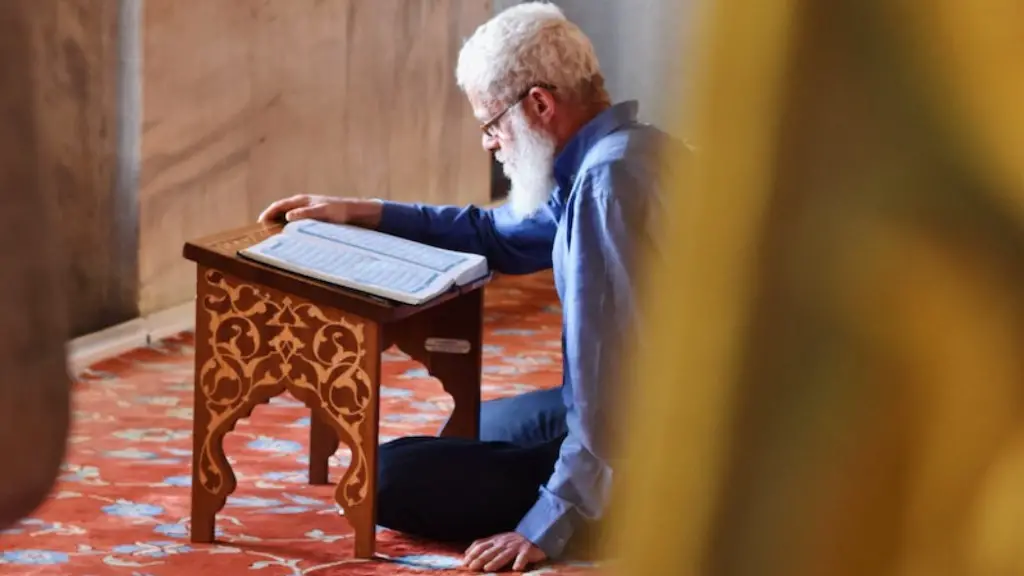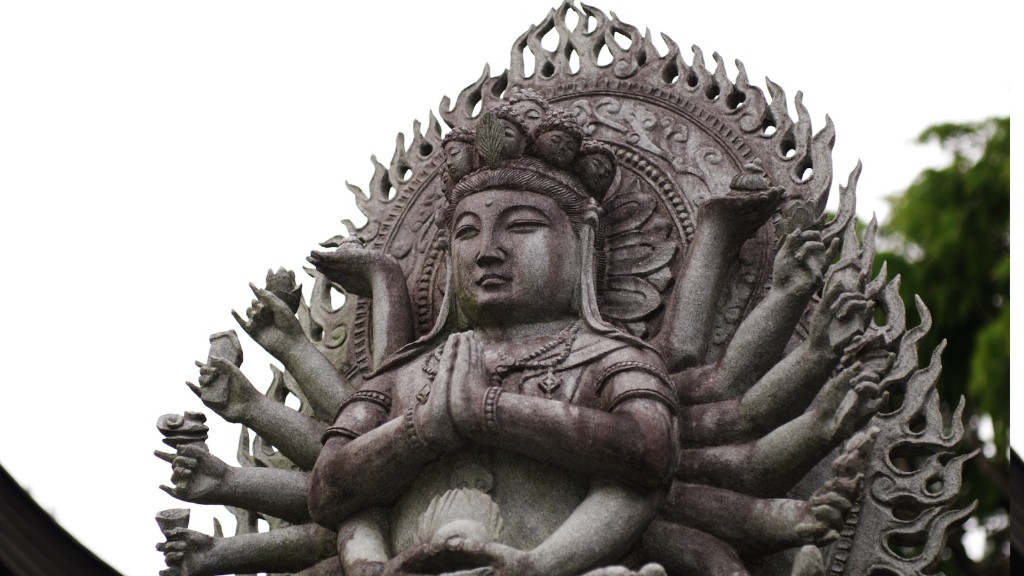There are different opinions on this matter in Islam. Some Muslims say that husband and wife can remarry after divorce, as long as they have not remarried someone else in the interim. Other Muslims say that husband and wife cannot remarry after divorce, unless the woman marries someone else first, and then that marriage ends in divorce or death.
There is no definitive answer to this question as it depends on the interpretation of Islamic law. Some scholars believe that husband and wife can remarry after divorce, while others believe that they cannot.
Can I marry my ex husband again in Islam?
The iddat period is a mandatory waiting period for Muslim women after divorce.
The iddat period lasts for 3 menstrual cycles or 3 lunar months, whichever is longer.
During the iddat period, the woman must not marry anyone else.
After the iddat period is over, the woman is free to marry her husband again if she wishes.
The Quranic verses on divorce are quite clear. A couple enjoys the freedom to remarry and reunite even after two divorces, but after the third, they can reunite only if the woman gets married to another man and divorced. This is to ensure that the couple has truly considered all other options before resorting to divorce.
How long can you remarry after divorce in Islam
It is important for women of childbearing years to wait until three menstrual cycles have passed before remarrying after a divorce. If during this waiting period, the woman discovers that she is pregnant, then her former husband has the right to re-marry her. This waiting period is important to ensure that the woman is not pregnant with her former husband’s child.
It’s actually quite common for people to get divorced and then later remarry their ex. In some ways, second marriages to the same person can be more fruitful than first marriages. This is because the couple has already been through the tough times and knows what to expect from each other. They also know how to work through problems and communicate effectively.
How many times can you divorce in Islam?
In Islam, the husband is allowed to divorce his wife by pronouncing the phrase “I divorce you” (in Arabic, talaq). He can do this up to three times, after which they can’t get back together unless she marries someone else.
In Islam, divorce is considered as an exception to the status of marriage. The prophet declared that among the things which have been permitted by law, divorce is the worst. If the attempt to reconcile fails, talaq may be effected. The dissolution of marriage may be either by the act of husband or by act of the wife.
What are the rules for divorce in Quran?
In Islam, there are two types of divorce: talaq (final divorce) and khulṭā (revocable divorce). A man may issue a talaq to his wife without her consent, but a khulṭā must be mutually agreed upon between the husband and wife. After a talaq has been issued, the husband and wife become strangers to each other and are no longer required to fulfill the financial obligations of marriage. However, they must still fulfill the obligations of parenting.
A woman who has been divorced may remarry, but a man who has divorced his wife may not remarry her unless she has first married another man and been divorced by him. This is to ensure that the woman is not being taken advantage of.
Divorce is a difficult and painful process, but it is sometimes necessary. If you are considering divorce, be sure to consult with a Muslim theologian or lawyer to ensure that you are following the proper procedure and not violating any of Islam’s teachings.
Imam and BAOBAB agree that there are four main types of divorce under Muslim law: talaq, mubarah, khul’u, and tafriq or faskh (Imam 19 Oct. 2011; BAOBAB 13 Oct. 2011). Talaq is the most common type of divorce and can be either initiated by the husband or wife. Mubarah is a divorce initiated by mutual agreement between the husband and wife. Khul’u is a type of divorce initiated by the wife and can be granted by the husband if he agrees to it. Finally, tafriq or faskh is a type of divorce initiated by the husband when the wife has committed an act of disobedience.
Can I marry my divorced husband again
There is no such compulsion under Hindu Law to marry the same person after getting divorced. One can marry the same person after following valid rituals and customs and making sure that such marriage is a valid marriage under the Hindu Marriage Act.
Although the law cannot prevent you from remarrying your ex-spouse, it is generally not recommended. After ending a marriage, a couple may realize they rushed into a divorce instead of working through the problems in their marriage. Other couples may reconnect and rekindle a relationship years after a divorce. Whether or not to remarry your ex-spouse is a personal decision that should not be taken lightly.
Why do divorced couples get back together?
Recognizing and resolving the problems that caused your marriage to fail is the key to getting back together and making it work this time around. If you can identify the issues that led to the breakdown of your relationship and make the necessary changes, there is a good chance you can make your marriage work again. However, if you simply try to pick up where you left off without addressing the underlying issues, you are likely to end up in the same situation you were in before.
It is important to follow the proper procedure for pronouncing talaq, as laid out by religious elders. This includes pronouncing talaq before Kazi in a Mosque, and giving maintenance to the wife for three months, as fixed by Kazi. If either party is angry when pronouncing talaq, it is not valid.
What makes a talaq invalid
A talaq, or divorce, can become invalid in certain circumstances. If the husband is intoxicated, in extreme anger, or not in control of his faculties, the talaq may be invalid. Additionally, if the husband says the talaq out of duress or coercion, it may also be invalid.
There are three grounds on which both men and women can apply for divorce: Mutual Consent, Cruelty, and Adultery. Mutual Consent is when both parties agree to the divorce. Cruelty is when one party has subjected the other to physical or mental cruelty. Adultery is when one party has had an extra-marital affair.
How many types of divorce are there in Islam?
Divorce under Muslim law is categorized into different types based on how the divorce is initiated. The husband can initiate divorce through talaq-ul-sunnat, talaq-ul-biddat, ila, or zihar, while the wife can initiate divorce through talaq-e-tafweez or khula. Alternatively, divorce can be initiated mutually by both parties through mubarat. Finally, divorce can also be decreed by a court of law under The Muslim Dissolution of Marriage Act, 1939.
I Talaq is a Muslim divorce law that allows a husband to dissolve a marriage at his own will and without assigning any reason. This law is based on the Islamic belief that marriage is a sacred contract between a man and a woman, and that a husband has the right to end this contract if he feels it is no longer in his best interests. Although I Talaq gives husbands a great deal of power in ending a marriage, it also provides certain protections for wives, such as the right to receive alimony and child support after the divorce is finalized.
Final Words
Yes, husband and wife can remarry after divorce in Islam.
In Islam, husband and wife can remarry after divorce if theyBoth partners have the mutual consent to do so.


